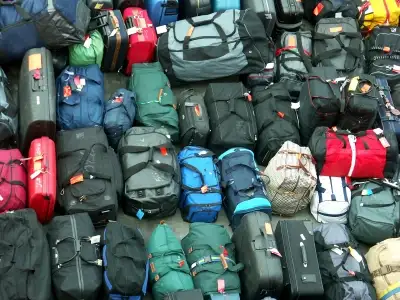
On my way home Wednesday, the only thing I could think about was American’s decision to charge passengers for all checked baggage. This policy is truly game-changing because American has ventured into sacred territory by collecting revenue from a service that has always been free. To call it a service, of course, is arguably misleading, because checking baggage is an unavoidable aspect of air travel for most passengers.
It’s important to note, however, that no matter how much consumers dislike American’s move (and, judging by some of our readers’ comments, it’s pretty unpopular) the airlines simply aren’t making money these days, almost entirely due to astronomical fuel prices. According to the Wall Street Journal, record crude oil prices ($133 a barrel) are certainly the root of the issue, but the “price of crude oil is exacerbated by a further problem. Refiners currently charge up to $36 a barrel to turn crude oil into jet fuel; by contrast, a few years ago, they charged just $3 to $5 a barrel.” That means jet fuel effectively costs $160 a barrel, up from $88 last year and $30 six years ago. One could argue that exorbitant executive salaries and other poor business decisions aren’t helping the airlines’ bottom lines, but the situation begins and ends with the price of fuel.
Which brings us back to the passengers, because the rising price of oil shows no signs of slowing, meaning airlines will continue to search for new revenue streams. Carriers have already added or increased change fees, instituted extra charges for preferred coach seating, and adopted pay-as-you-go onboard dining. One option they haven’t tried, an idea which, until yesterday, would have been blasphemy, is to charge for carry-on bags. Has the industry really fallen so far that it isn’t crazy for me to suggest this?
For the time being, competing carriers will consider a policy similar to American’s. According to the AP, United is “seriously studying” a fee of its own, and you can bet other airlines are doing the same. Delta said it has no plans at this time, and maybe that bodes well for the immediate future. American’s move is bold, perhaps too bold for other airlines to match.
One thing consumers should bank on is airlines trimming capacity wherever they can, eliminating unprofitable routes and reducing flights on marginal ones. This, of course, will lead to crowded planes, less seat availability, and higher prices. But to paraphrase my colleague Tim Winship, it’s better to put up with the airlines than to lose them, right? Regardless, if the business is going to survive, it looks like we’ll have to pay up.
We hand-pick everything we recommend and select items through testing and reviews. Some products are sent to us free of charge with no incentive to offer a favorable review. We offer our unbiased opinions and do not accept compensation to review products. All items are in stock and prices are accurate at the time of publication. If you buy something through our links, we may earn a commission.
Related
Top Fares From
Today's Top Travel Deals
Brought to you by ShermansTravel
Porto to Lisbon: 7-Nt, Small-Group Portugal...
Indus Travels
 vacation
$1899+
vacation
$1899+
Greenland: Luxe, All-Incl. 11-Nt Exploration Small-Ship...
Swan Hellenic



Ohio: Daily Car Rentals from Cincinnati
85OFF.com





